Jeans are the number one wardrobe classic. We are one a mission to continually improve the way we produce jeans. We’d like to share some more details and future plans for those interested in knowing the nitty gritty about sustainable and circular denim production.

Our goal: create unique denim washes while using as little water and chemicals as possible.
There are many initiatives and options in making the laundry proces cleaner both environmentally as well as ‘social’ (for employees in the laundries) - the list is too long to mention all in this blog, however at least a few to mention our ideas and philosophy:
• We use as little chemicals as possible (in 75% of our jeans, no chemicals are used at all) and have the ambition to use no chemicals at al
• In terms of water the modern techniques such as laser, ozone provide a great alternative to the old (and dirty) techniques such as hand scraping, sandblasting, potassium permanganate spray. The innovations we use at MUD Jeans obviously. Particularly the elimination of PP spray and Stone washings are revolutionary in the industry
• On top of that Yousstex International operates water recycling stations in their facility, in which they recycle up to 95% of the water they use - in that way are making a huge positive impact. Oh and we all drank the recycled water and guess what, we all survived it!

Our goal: use no leather labels on our jeans at all and use the best paper for our hangtags.
Hello dear vegans, we can be friends. We will never use leather labels; but printed ones at the waistband - to facilitate the recycling process (based on principles of circle economy) and to eliminate the use of leather.
When it comes down to labels many options are available. We have chosen for cotton woven labels to be able to recycle easily.
From september onwards all our cardboard labels, hangtags and waistband tags will be Cradle 2 Cradle certified, C2C can be seen as a better and improved method of recycling. More specific this implies that we reuse resources and avoid harmful substances for people and planet in our labels.



Our goal: use as much post-consumer recycled cotton as possible.
Right now, all MUD Jeans contain post-consumer recycled denim and organic cotton. Current recycling techniques cause fibres to lose strength, and therefore limit jeans to containing 40% recycled content (our stretch jeans contain 23% recycled content). We aim to design jeans made of 100% recycled denim in the future.
Of course we love cotton. We wear it every day. Hereby some more info about the fabric that produced the first pair of jeans back in 1873.
• Cotton is a cellulosic (natural) fibre which is bio degradable
• Post Consumer Recycled Cotton is one of the most sustainable fibers because it requires no land, water or pesticides. It is preferred over pre-consumer recycled cotton because it has already ‘served’ one cycle as a product and therefore the optimum execution of a circular product
•Organic Cotton is preferred over ‘conventional’ virgin cotton because no pesticides or chemicals are used when growing it - and no Genetically modified seeds are used.
• Polyester- and other synthetic fibers are not biodegradable and are therefore not included in our jeans - except for 1 to maximum 2% elastane which is required for comfort jeans. We have not come across a more sustainable option for this yet. However we strongly promote (also for women) jeans without stretch/comfort to avoid the elastane.

Our goal: use sustainable dye.
This target we set ourselves it not an easy one because the vast majority of indigo is synthetic. At this moment we use dye made with indigo from Dystar which is a C2C certified dye; meaning it can safely be re-used and reprocessed in new products and is non-harmfull for humans.

Royo (our main fabric supplier):
- uses VAT 40% Solution Indigo from Dystar and
- recycles its waste water in the mill
- Currently Royo is developing a revolutionary dying
Orta (our other fabric supplier) is using several techniques to minimize the impact:
- VAT 40% Solution Indigo from Dystar which is a Cradle to Cradle certified dye; meaning it can safely be re-used and reprocessed in new products and is non-harmfull for humans
- Reserve- & Clean Flow = Indigo Flow - a new dyeing technique resulting in up to 70% water and energy savings and resulting in much cleaner waste water
- Advanced waste water treatment

Our goal: use 100% stainless steel, 100% recyclable.
Metals normally get an electroplating finish to give them certain colours. This is impactful in the environment and makes it harder to recycle, that's why we have chosen not to use any finish on our buttons and rivets.
From August onwards we will use rivets and buttons that are made from 100% stainless steel and no finishing (electroplating). These trims are developed by PRYM Italy under their ‘Life’ program. After use these trims can be 100% recycled without any problem into new trims. This because no other materials are used in producing the trims.
Recycled metals are used by other brands and are a good way of minimising impact.
On our denim shirts and sweaters we used buttons made out of recycled jeans.








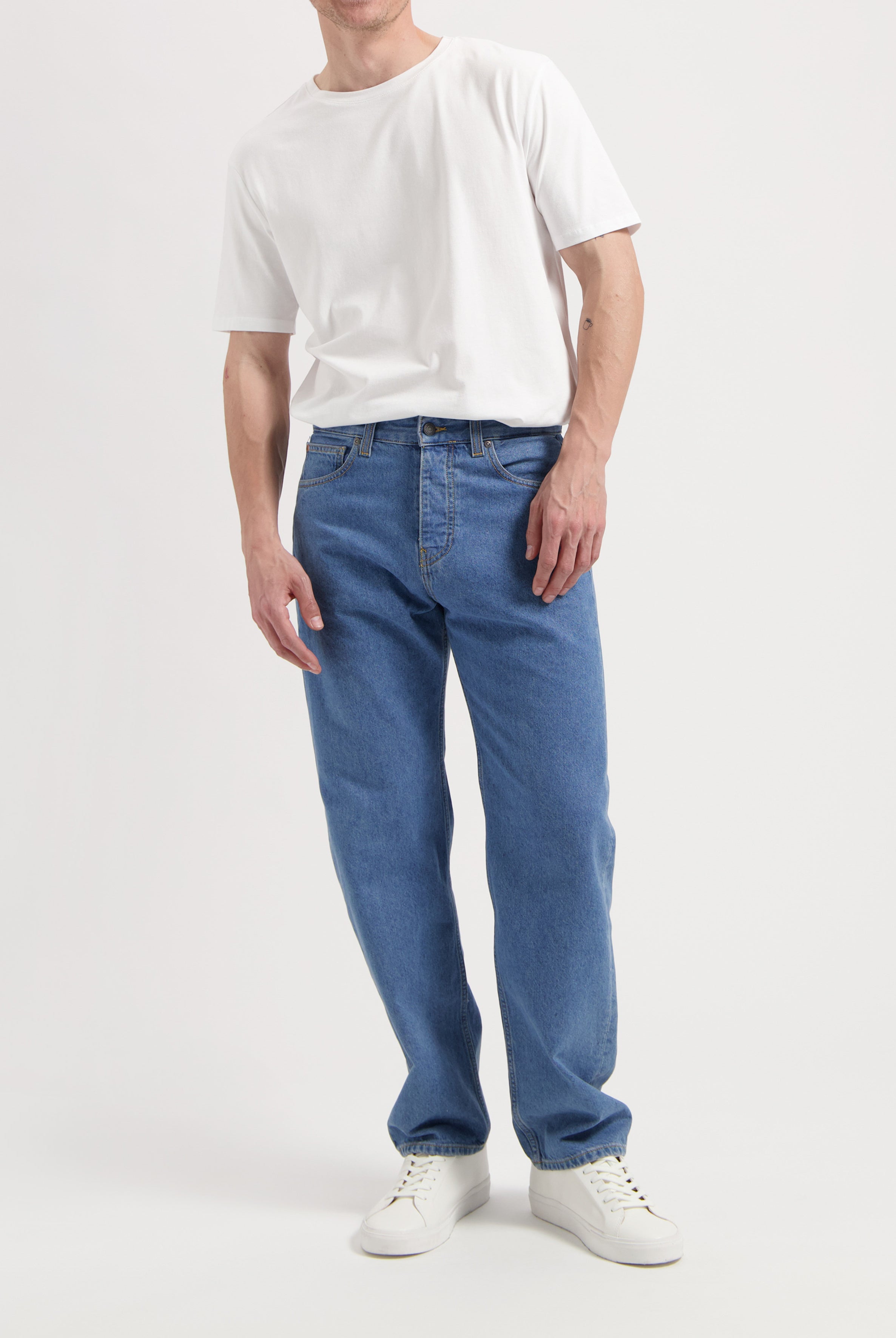
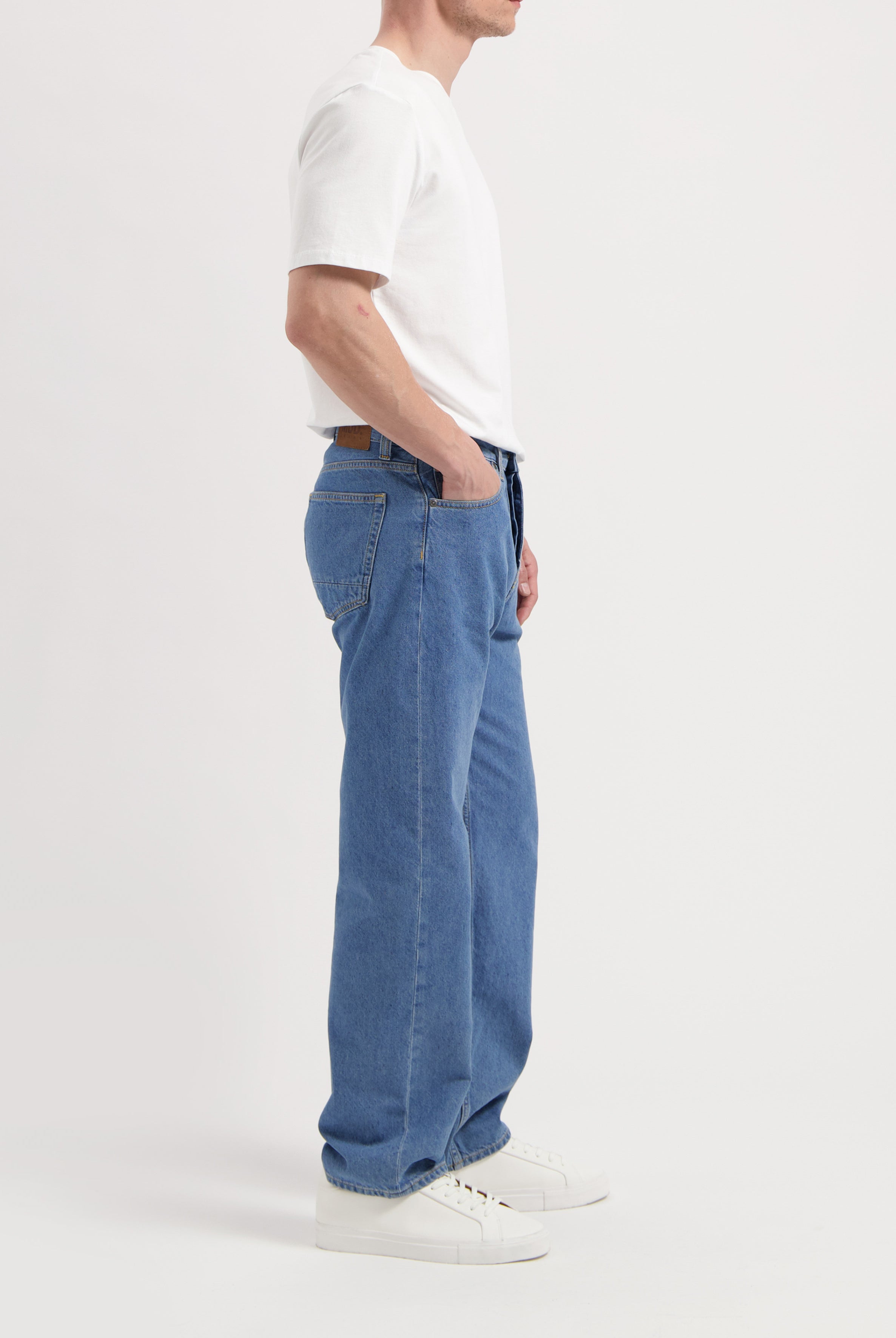
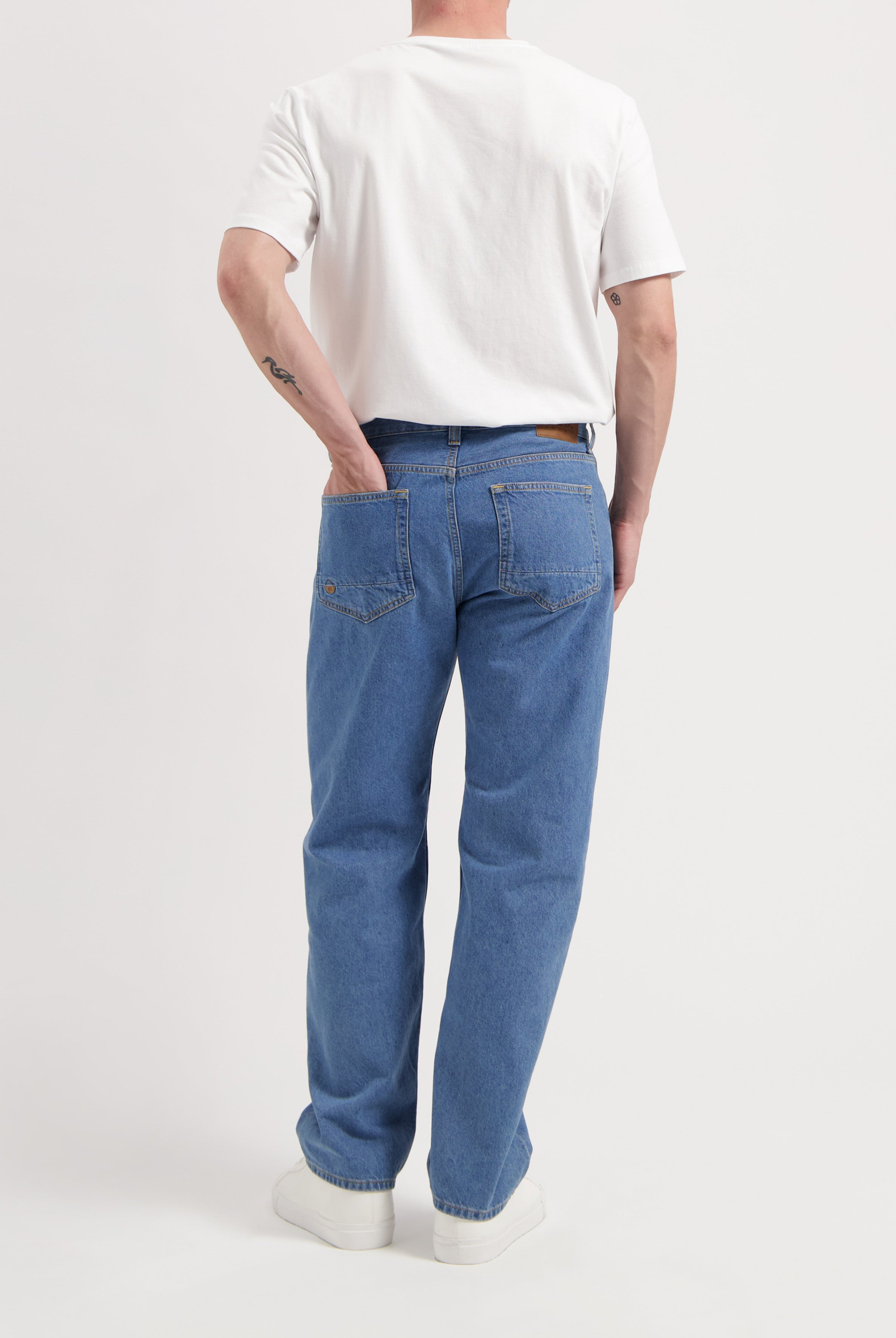

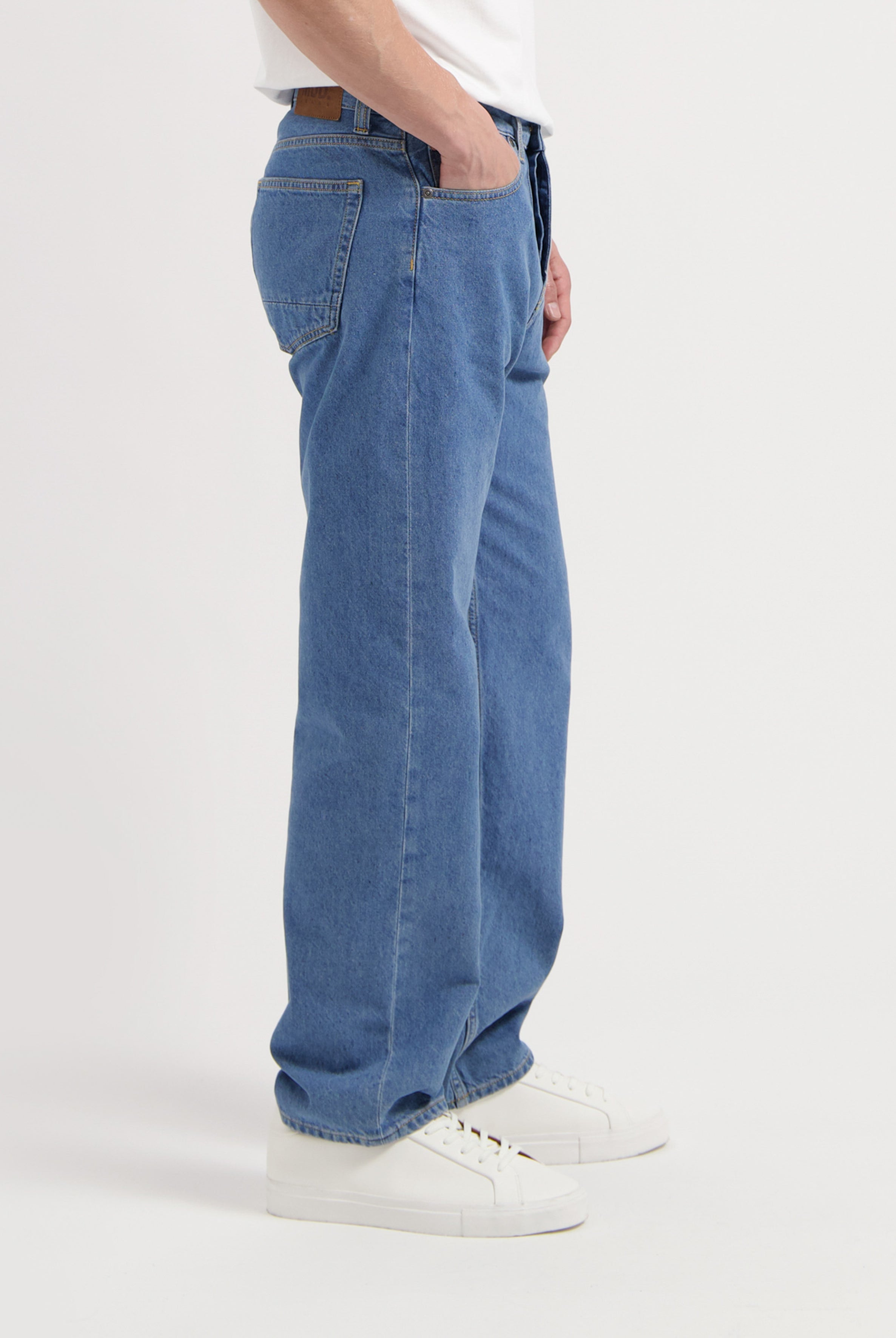
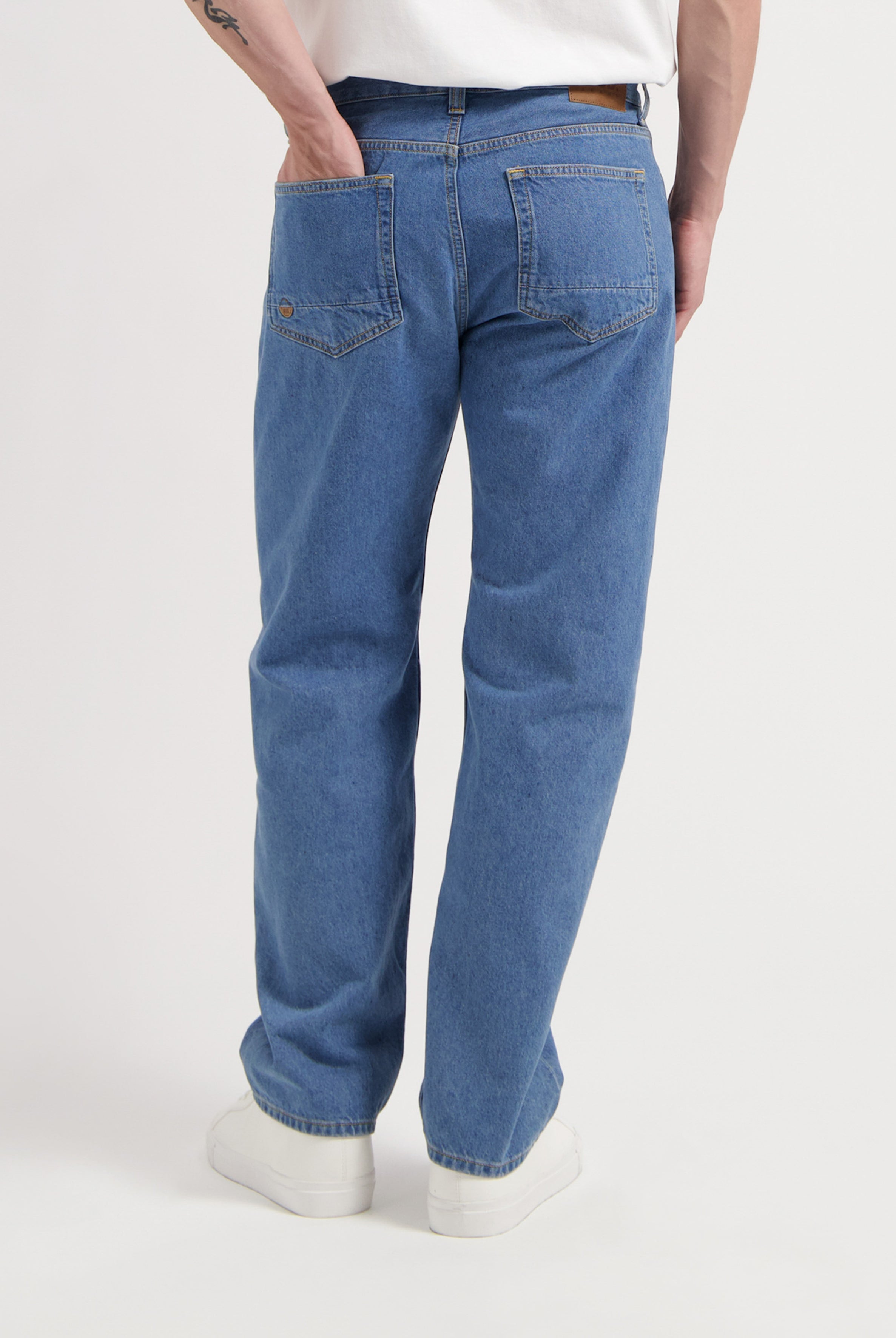
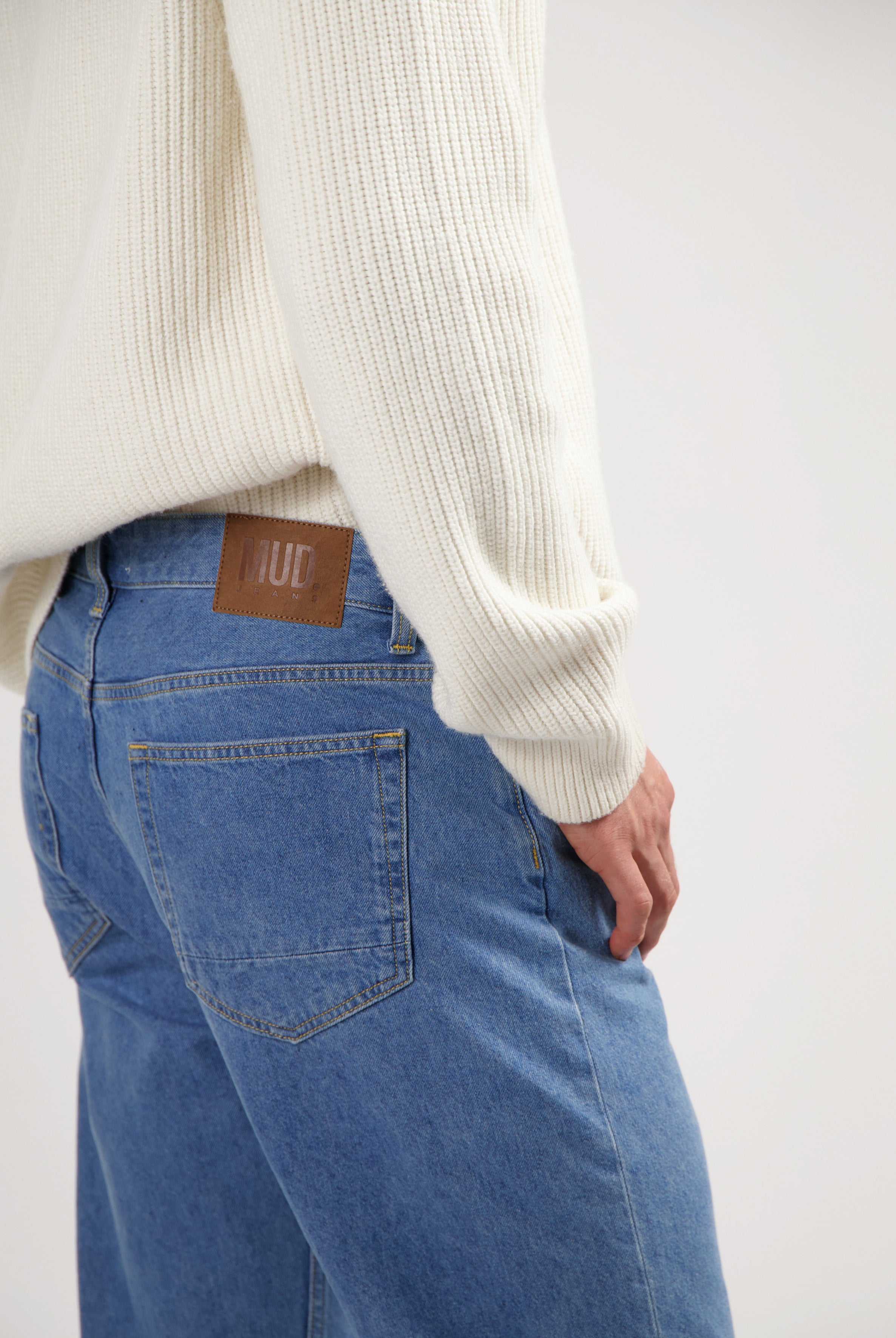
Reacties
What is the future goal regarding the composition of MUD Jeans?